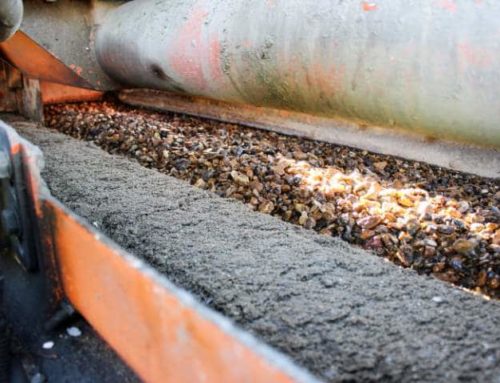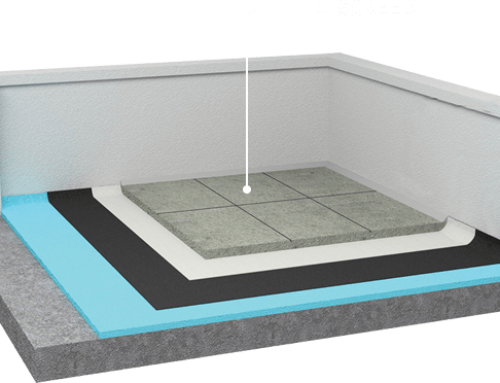
Concrete cube testing explained (and why untested concrete risks the integrity of your work)
As a building contractor, it’s your job to ensure the integrity of any building work you oversee. That’s why you care about the quality of the concrete you use. If you’re wondering how you can make sure you’re getting a high-quality product, read on to find out about cube testing. Carrying out regular cube tests is one of the main ways suppliers can guarantee their concrete is strong and safe to use.
Why does concrete need to be tested?
The purpose of a concrete cube test is to ensure that the concrete meets its expected compressive strength. If the concrete doesn’t hit its design strength – or if it hasn’t been tested – the supplier can’t guarantee its quality. And if the supplier can’t guarantee quality, then there’s a big risk that the concrete might not be up for the job. It could crack, crumble or collapse in just a few months. You can only be 100% confident about the quality of your concrete if you use a supplier that cube-tests.
What is a concrete cube test?
A concrete cube test involves taking a sample of freshly mixed concrete, letting it cure, then crushing it and measuring its compressive strength. Many concrete suppliers carry out this process at a certified test house, away from their facilities. At Rapid Readymix, we conduct all our cube tests in-house, as we have a state-of-the-art testing laboratory at our South London concrete yard. Our temperature-controlled lab features water tanks, a concrete cube crusher and measuring scales.
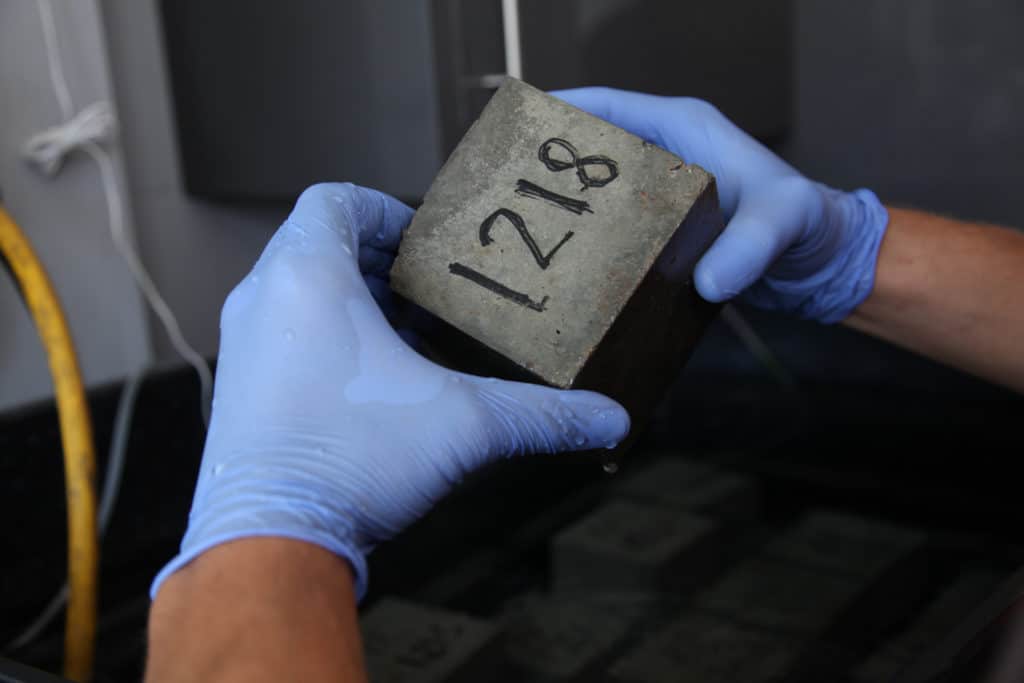
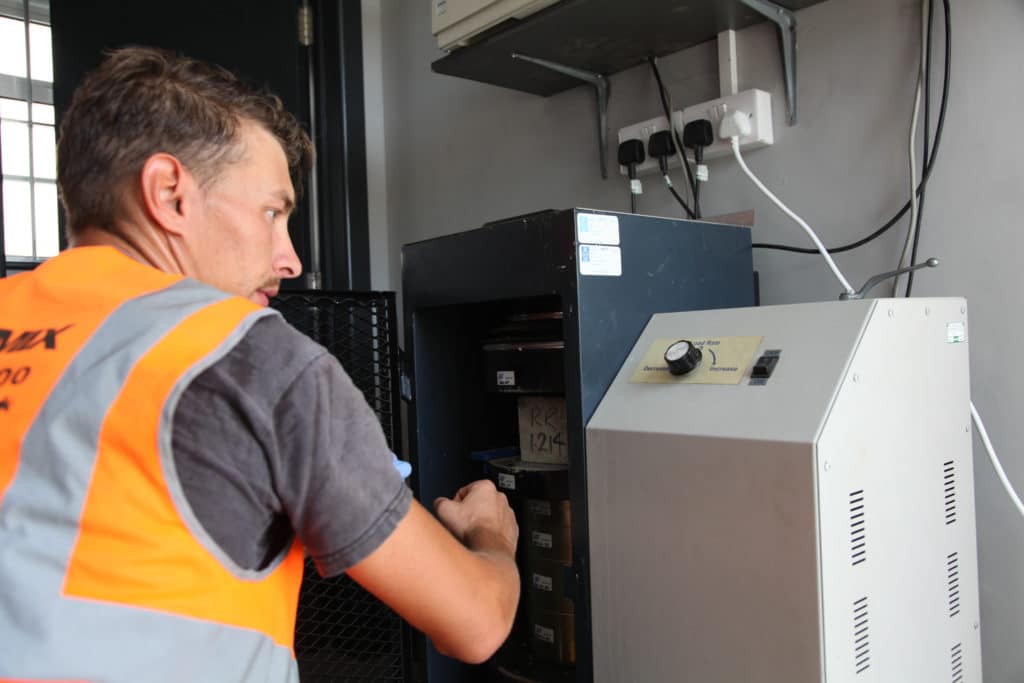
What happens during a concrete cube test?
A typical concrete cube test follows these main steps:
- Take a sample of freshly mixed concrete – We take a sample of the concrete we want to test from our mobile batching unit, where it has been freshly mixed.
- Pour the concrete into 3 cube moulds – The sample concrete is poured into 2 or 3 cube moulds (depending on the customer’s requirements). The concrete in each mould is then filled, levelled, compacted and tampered to BSI requirements. Each cube is taken to our temperature-controlled lab, where it is kept for 24 hours, before being cracked and put into our water tanks to cure.
- Let the concrete cubes cure – The cubes are kept in our temperature-controlled water tanks for 1–4 weeks.
Crush the cubes to test their strength – When each cube is ready for testing, it is put into a concrete crusher. This machine exerts force onto the cube until it breaks. The rate at which it crushes is measured, and this is its compressive strength.
What size should the concrete cubes be?
Concrete cubes are typically made in moulds with dimensions of 100mm x 100mm x 100mm. The moulds have to meet the British Standard for testing hardened concrete (BS EN 12390-1:2000).
When should the cubes be tested?
The concrete should be tested after 7 days and after 28 days. That’s why 2 or 3 cubes are taken – so that the concrete can be measured after different lengths of time.
Rapid Readymix delivers strength-tested, quality-assured concrete every time
At Rapid Readymix, quality is at the heart of everything we do. We are BSI-certified and quality-assured, and we take these responsibilities seriously. All our concrete is cube-tested on a regular basis at our in-house testing facility, ensuring you get strong concrete that performs and lasts.
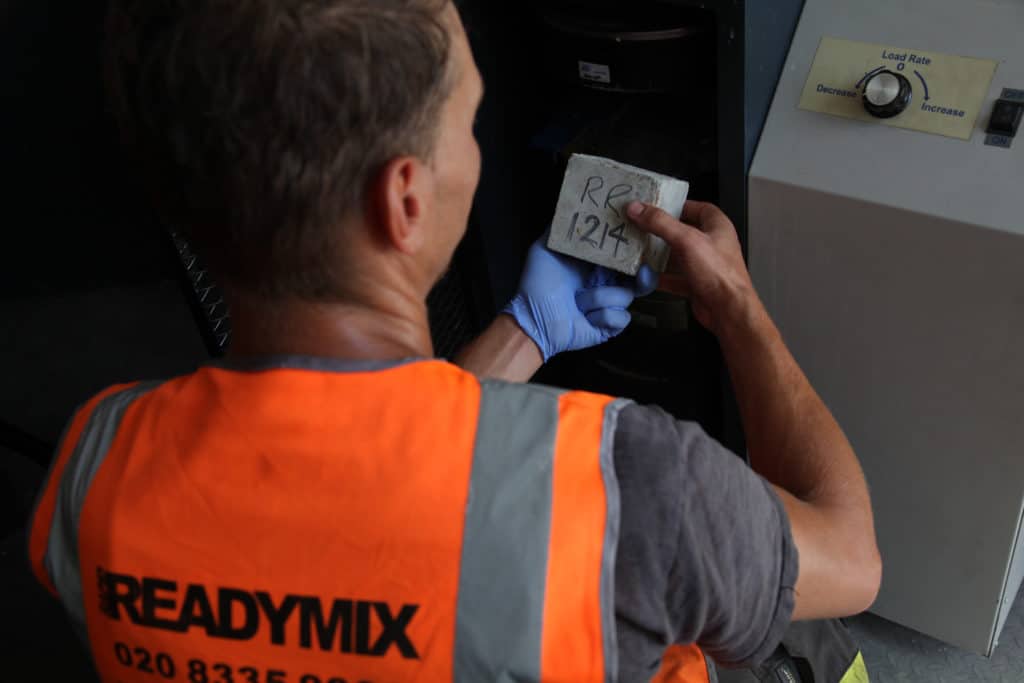
Order Rapid Readymix concrete with same-day delivery in Surrey and London
To get strength-tested concrete delivered to your site in Surrey or London, contact us at Rapid Readymix today for a free, no-obligation quote. Same- and next-day deliveries available.
Use our Concrete Calculator to work out how much concrete to order
Not sure how much concrete you need? Use our Concrete Calculator to find out! (You can read more about our Concrete Calculator in our recent blog.)
Accreditations & Certifications


